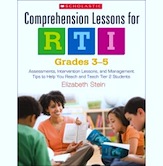Dewey’s Empowering Quote
A MiddleWeb Blog
Here’s one of my all-time favorite educational quotations:
When teachers speculate, reason, and contemplate using open-mindedness, whole-heartedness, and responsibility, they will act with foresight and planning rather than base their actions on tradition, authority, or impulse.
This quote, by the one and only John Dewey, says it all. It empowers. It inspires. It reminds. It rebuilds. It connects. It reconnects. And it will continue to amaze current and future generations of educators.
It’s one of those quotes I often revisit when I’m feeling the need to rejuvenate or balance my energy as I connect my passion with my role as an educator. It’s no secret that we are in the midst of a fast-paced curriculum, an ongoing high stakes testing craze, and instructional shifts associated with the Common Core that may seem overwhelming.
Yet when we ponder these words of John Dewey, it’s easy to realize what’s most important. It’s the power of our own teaching voice and actions. And it feels empowering to realize that our profession connects us as educators in a timeless bond of dedication across the past, present, and future. That’s an inspiring revelation to say the least.
Dewey asks us to listen deeply to our own reflective voices. And as I take a few minutes now, I can see that Dewey’s insight has emboldened me through so many educational journeys.
Bottom line: Best practices

Before moving to middle school three years ago, I was deeply entrenched in the world of elementary school (grades K-5) and the implementation of Response to Intervention. Dewey’s quote applied then too.
Whether I am talking about UDL or RTI, it’s all comes down to practicing the very best teaching I can, so that all students will reach their personal best. Isn’t that what we all want? It takes mindful planning, strategic instruction, smart assessment, and careful structuring for optimal learning environments that guide students to achieve. It requires an open-mindedness that will allow for meaningful learning opportunities for all students in our classrooms.
It doesn’t seem to matter what pedagogical framework I am thinking about: Dewey’s quote applies. It’s all about being a professional. Each student deserves our professional best.
Take RTI, for example
A few years ago, I wrote this article about how Response to Intervention (RTI) was really nothing new. It was, in my mind, what we special educators have been doing for decades. We know what it means to provide strategic instruction, to monitor each student’s progress carefully, and to plan our teaching using data gathered through analyzing students’ performance. We know that students with special needs require this level of effort from us.
Although there is not one single definition of RTI, there are some common themes. For me it is about seeing every student as special. It’s all about high quality core instruction that guides students to meet high expectations. And the process to guide these students depends heavily on teachers’ willingness to stay current and apply research-based instructional methodologies. RTI is a process of quality learning experiences orchestrated by teachers who as Dewey stated, “…speculate, reason, and contemplate using open-mindedness, whole-heartedness, and responsibility, [and] will act with foresight and planning rather than base their actions on tradition, authority, or impulse.”
The way I see it . . .

RTI is one such process. It guides schools to support students who are demonstrating difficulties either academically or behaviorally. All students can benefit, and the students who are struggling will get the support they need to achieve. Sometimes it’s just a matter of making instructional changes such as trying a new strategy or reteaching a concept for the student to succeed within the whole class setting.
RTI can significantly diminish the unnecessary classification of a learning disability. For more details of the basics about RTI, check out these sites:
• National Dissemination Center for Children with Disabilities
• The National Center on Response to Intervention
My new book

You can see some of my favorite research-based strategies in a newly published book from Scholastic: Comprehension Lessons for RTI: Grades 3-5: Assessments, Intervention Lessons, and Management Tips to Help You Reach and Teach Tier 2 Students (June 2013). It’s my first book, and I know you’ll understand my pride in actually getting it done – with John Dewey’s energizing quote always at hand. You can view some sample pages here.
So, what is it that you are contemplating? How do you connect to Dewey’s insight? What book would you like to write?


































I love what you said here, Elizabeth . . . RTI is a process of quality learning experiences orchestrated by teachers who as Dewey stated, “…speculate, reason, and contemplate using open-mindedness, whole-heartedness, and responsibility, [and] will act with foresight and planning rather than base their actions on tradition, authority, or impulse.”
I SO agree! One thing to think about is that teachers (and others) may not naturally know how to do this well. (I’m talking about “…speculate, reason . . . “etc.) That’s one reason I think regular teaming is important. Learning to monitor responses and reactions can begin to take place in teams; and foresight and planning are key to successful teams. Knowing what to do is one thing. Knowing how to do it is something else entirely.
Thanks so much for this delightful and thought-provoking post!
Anne, thanks for your comment. It’s so true. The ability to reflect deeply is not something to be taken for granted. Without it, teachers will likely have a difficult time being proactive and intentional in their instruction and assessment methods.
Teaming allows for that ongoing collaboration that helps teachers to share their talents, strengthen their knowledge of students, teaching beliefs, teaching behaviors, and ultimately create learning environments for students to achieve.
Teachers must keep their minds open to allow for this reflective process to go through a complete and ongoing cycle of effective learning and instruction.
Thanks so much!